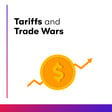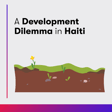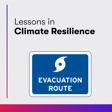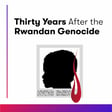Become a Creator today!Start creating today - Share your story with the world!
Start for free
00:00:00
00:00:01

Will Climate Shock Cause Climate Change Action?
Does throwing tomato soup at a famous painting force the world to respond to climate change? In this episode, Dana Fisher, School of International Service professor and director of American University’s Center for Environment, Community & Equity, joins Big World to discuss the evolution of climate activism, the demographic of people participating in climate protests, and the goal of more radical climate action.
Fisher, whose research interests include climate activism, environmental stewardship, and climate politics, begins our conversation by explaining the evolution of climate activism over the past few decades (1:38) and discussing the rise of the “radical flank” of climate activists (5:25). Fisher also defines the term “climate shock” (10:00) and explains what happens when climate shocks are no longer shocking (13:16).
What is motivating the population of people currently participating in climate activism (14:33)? Can we expect any significant actions or agreements coming out of COP 28 this month (20:02)? Fisher answers these questions and explains why she believes international climate conferences are not worth the carbon footprint, particularly if you are not a delegate involved in negotiating (21:52). To close out the discussion, Fisher gives our listeners a preview of her forthcoming book, Saving Ourselves: From Climate Shock to Climate Action (27:15).
In the “Take 5” segment (17:37) of this episode, Fisher answers this question: What are five climate policies you'd like to see adopted in the United States?
Recommended















